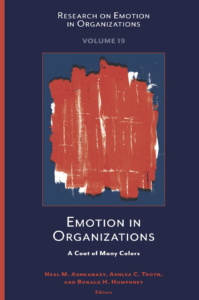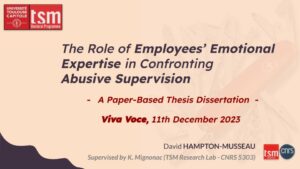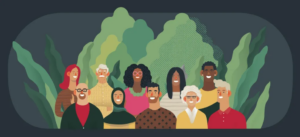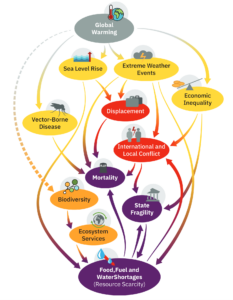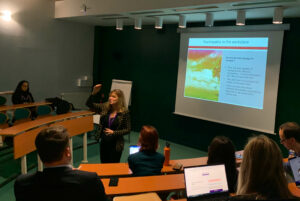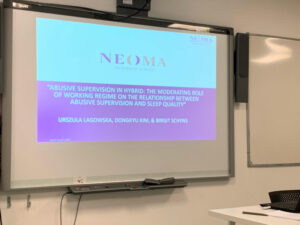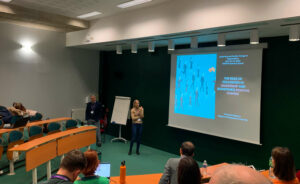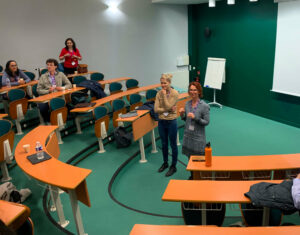Éthique
🔍 Conséquences de certains enseignements en économie et de certaines croyances populaires…
📌 Tout récemment, la revue Academy of Management Learning & Education offre des perspectives étonnantes sur la façon dont l’éducation en économie peut façonner nos perceptions de l’honnêteté et des comportements humains.
✅ Lindebaum (2024) discute du rôle de la psychologie sociale dans la compréhension de la relation entre les individus et les phénomènes macroéconomiques. Le “caractère social” (Fromm, 1941, 1976) engendre ainsi un alignement du désir individuel et des impératifs sociaux, et donc une gratification d’agir conformément aux attentes sociales et culturelles.
✅ Aussi, Ong et al. (2024) enquêtent sur l’impact de l’éducation en économie sur les croyances populaires concernant “l’honnêteté”.
🌀 Saviez-vous que les personnes spécialisées en économie sont plus susceptibles de croire que l’honnêteté nécessite des efforts ????? 🌀🌀
✴️ Cette croyance fait l’intermédiaire entre la spécialisation en économie et des comportements non éthiques.
✴️ Ainsi, l’éducation en économie, et ses préceptes classiques et utilitaristes, renforce souvent l’hypothèse d’un “Homo Economicus”, amenant les étudiants à considérer les comportements humains à travers un prisme étroit (voir Fourcade et al., 2015; Urbina & Ruiz-Villaverde, 2019).
❌ Les individus seraient des acteurs rationnels et intéressés.
🔆 Comment les Universités et Écoles de Commerce peuvent-elles repenser leurs approches et encourager les étudiants à remettre en question les présupposés et hypothèses de théories économiques classiques ?
✅ Colombo et al. (2024 : 5) proposent une approche socio-écologique de l’apprentissage et de l’éducation en gestion en s’éloignant « des pratiques de gestion exploitatrices et en s’orientant vers un avenir juste et durable ».
✅ Stratford (2024) a aussi expliqué que la crise environnementale actuelle nécessite un changement fondamental dans notre façon de penser l’éducation et le rôle des universités. L’auteur discute de la “subjectivité écologique” et de la nécessité de faire évoluer l’enseignement supérieur au-delà des méthodes libérales conventionnelles.
📌 L’article suggère que de nouvelles approches théoriques et interconnectées de l’enseignement et de l’apprentissage dans l’enseignement supérieur peuvent être développées en utilisant les concepts d’université écologique, de subjectivité écologique et d’intelligence anthropocène.
✴️ Ces approches vont au-delà de l’accent opérationnel mis sur “l’écologisation de l’académie” et la “durabilité” dans l’éducation et indiquent le potentiel de changements profonds dans l’enseignement supérieur.
📌📌 Sur la base de l’exemple de “l’enseignement de l’économie “, il démontre comment des approches méthodologiques défectueuses en classe peuvent entraîner un manque important “d’intelligence anthropocène”. Divers économistes hétérodoxes défendent déjà toute une gamme de perspectives écologiques.
✅✅ Stratford (2024) a également exposé d’autres disciplines, telles que la psychologie, la médecine, les sciences politiques, les sciences humaines, la physique et le droit, suggérant qu’une transformation écologique plus large est possible.
✳️✳️ En intégrant une gamme plus large de perspectives (ontologiques et épistémologiques), sur les comportements humains, nous pourrions favoriser une compréhension plus nuancée de la motivation et de l’éthique humaines, et réfléchir autrement les défis socio-environnementaux 🔋🔋
📚 Voir aussi sur ce sujet le livre très didactique de Heu?reka (Gilles Mitteau, 2024), “Tout sur l’économie, ou presque” en version revue et augmentée ✅
🔋 Ou bien la proposition pragmatiste de John Dewey vue par Christophe Point (2023)…
📚📚 Todd Kashdan explique depuis longtemps combien la “curiosité” est un trait primordial pour atteindre un but et un “sens” dans la vie, au-delà de la simple recherche du “bonheur” (Kashdan et al., 2013, 2020).
🗓️ Cette curiosité permet de cultiver ce qui est nécessaire pour encourager des penseurs critiques dotés de courage, de résilience, et de passion pour l’apprentissage et la découverte ✳️
🔆 Comment créer ensemble un avenir plus responsable, éthique et juste pour tout le monde ? 🤝
✅ Hétier et Wallenhorst (2023) ont également exploré les défis et opportunités de l’éducation dans le contexte de “l’Anthropocène”.
↗️ S’adapter à cette nouvelle réalité et fournir aux étudiants les connaissances, les compétences et les valeurs nécessaires pour naviguer dans les complexités d’un monde en évolution rapide.
↗️ Dépasser les frontières disciplinaires traditionnelles et adopter des approches transdisciplinaires intégrant les connaissances et les perspectives de plusieurs domaines.
🔋🔋🔋 La question de favoriser la pensée critique, la créativité et la résilience chez les étudiants et de promouvoir la justice sociale et environnementale 🔆🔆
ÉducationÉconomique EnseignementSupérieur ApprentissageDeLaGestion
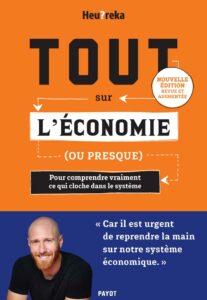
#Ethics
🔍 Consequences of certain economics teachings and popular beliefs…
📌 Recently, the Academy of Management Learning & Education journal offers astonishing perspectives on how economics education can shape our perceptions of honesty and human behavior.
✅ Lindebaum (2024) discusses the role of social psychology in understanding the relationship between individuals and macroeconomic phenomena. The “social character” (Fromm, 1941, 1976) thus generates an alignment of individual desire and social imperatives and, therefore, a gratification of acting according to social and cultural expectations.
✅ Also, Ong et al. (2024) investigate the impact of economics education on popular beliefs concerning “honesty.” 🌀 Did you know that people specializing in economics are likelier to believe that honesty requires effort???? 🌀🌀
✴️ This belief mediates between specialization in economics and unethical behaviors. ✴️ Thus, economics education, and its classical and utilitarian precepts, often reinforces the hypothesis of a “Homo Economicus,” leading students to consider human behaviors through a narrow and self-interested prism (see Fourcade et al., 2015; Urbina & Ruiz-Villaverde, 2019).
❌ Individuals would be “rational” and “self-interested” actors.
🔆 How can Universities and Business Schools rethink their approaches and encourage students to question the presuppositions and hypotheses of classical economic theories?
✅ Colombo et al. (2024: 5) put forth a social-ecological approach to Management Learning and Education by moving away “from exploitative management practices and into a just and sustainable future.”
✅ Stratford (2024) discussed that the current environmental crisis requires a fundamental shift in how we think about education and the role of universities. The author discussed “ecological subjectivity” and the necessity of evolving higher education beyond conventional liberal methods.
📌 The paper suggested that new theoretical and interconnected approaches to teaching and learning in higher education may be developed by utilizing the concepts of the Ecological University, ecological subjectivity, and Anthropocene Intelligence.
✴️ These approaches go beyond the operational emphasis of “greening the academy” and “sustainability” in education and indicate the potential for profound changes in higher education.
📌📌 Some examples, such as “economics teaching, ” were briefly explored to demonstrate how flawed methodological approaches in the classroom could result in a significant lack of Anthropocene Intelligence. Various heterodox economists are already promoting a range of ecological perspectives.
📌📌📌 Stratford (2024) also raised questions about other disciplines, such as psychology, medicine, political science, the humanities, physics, and law, suggesting that a broader ecological transformation is possible.
✳️✳️ By integrating a wider range of perspectives (ontological and epistemological) on human behaviors, we could foster a more nuanced understanding of motivation and human ethics and rethink socio-environmental challenges 🔋🔋
📚 See also on this subject the very didactic book by Heu?reka (Gilles Mitteau, 2024), “Tout sur l’économie, ou presque” in revised and expanded version ✅
📚📚 Todd Kashdan has long explained how “curiosity” is a primordial trait for achieving purpose and “meaning” in life beyond the simple search for “happiness” (Kashdan et al., 2013, 2020).
This curiosity cultivates what is necessary to encourage critical thinkers with courage, resilience, and a passion for learning and discovery.
🔆 How can we create together a more responsible, ethical, and fair future for everyone? 🤝
✅ Hétier and Wallenhorst (2023) also explored the challenges and opportunities of education in the context of the “Anthropocene.”
↗️ Education must adapt to this new reality and provide students with the knowledge, skills, and values necessary to navigate the complexities of a rapidly changing world.
↗️ Education must move beyond traditional disciplinary boundaries and embrace transdisciplinary approaches integrating knowledge and perspectives from multiple fields.
🔋🔋🔋 The matter of fostering critical thinking, creativity, and resilience in students and promoting social and environmental justice 🔆🔆
#EconomicsEducation #HigherEducation #ManagementLearning
Refs:
-
- Colombo, L., Moser, C., Muehlfeld, K., & Joy, S. (2024). Sowing the Seeds of Change: Calling for a Social-Ecological Approach to Management Learning and Education. Academy of Management Learning & Education, amle.2024.0086. https://doi.org/10.5465/amle.2024.0086
- Fourcade, M., Ollion, E., & Algan, Y. (2015). The Superiority of Economists. Journal of Economic Perspectives, 29(1), 89–114. https://doi.org/10.1257/jep.29.1.89
- Fromm, E. (1976). To Have Or to Be? Harper & Row.
- Fromm, E. (1941). Escape from freedom. Farrar & Rinehart.
- Hétier, R., & Wallenhorst, N. (2023). Penser l’éducation à l’époque de l’Anthropocène. Editions Le Bord de l’eau.
- Kashdan, T. B., Disabato, D. J., Goodman, F. R., & McKnight, P. E. (2020). The Five-Dimensional Curiosity Scale Revised (5DCR): Briefer subscales while separating overt and covert social curiosity. Personality and Individual Differences, 157, 109836. https://doi.org/10.1016/j.paid.2020.109836
- Kashdan, T. B., Sherman, R. A., Yarbro, J., & Funder, D. C. (2013). How Are Curious People Viewed and How Do They Behave in Social Situations? From the Perspectives of Self, Friends, Parents, and Unacquainted Observers. Journal of Personality, 81(2), 142–154. https://doi.org/10.1111/j.1467-6494.2012.00796.x
- Lindebaum, D. (2024). Management Learning and Education as “Big Picture” Social Science. Academy of Management Learning & Education, 23(1), 1–7. https://doi.org/10.5465/amle.2023.0173
- Mitteau, G. H. (2020). Tout sur l’économie, ou presque: Pour comprendre vraiment ce qui cloche dans le système. Payot.
- Ong, M., Cunningham, J. L., & Parmar, B. L. (2024). Lay Beliefs About Homo Economicus: How and Why Does Economics Education Make Us See Honesty as Effortful? Academy of Management Learning & Education, 23(1), 41–60. https://doi.org/10.5465/amle.2021.0134
- Stratford, R. J. (2024). Towards ecological everything – The ecological university, ecological subjectivity and the ecological curriculum. Policy Futures in Education, 14782103241227005. https://doi.org/10.1177/14782103241227005
- Urbina, D. A., & Ruiz-Villaverde, A. (2019). A Critical Review of Homo Economicus from Five Approaches. The American Journal of Economics and Sociology, 78(1), 63–93. https://doi.org/10.1111/ajes.12258


